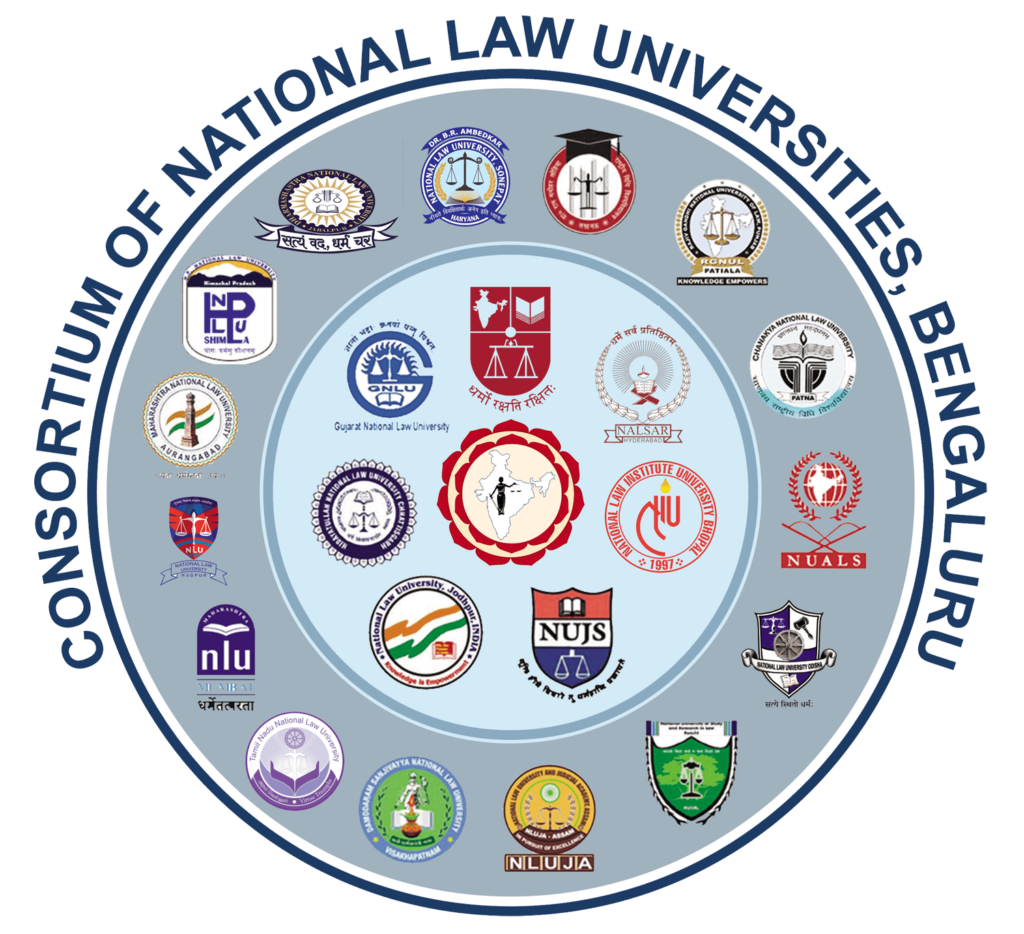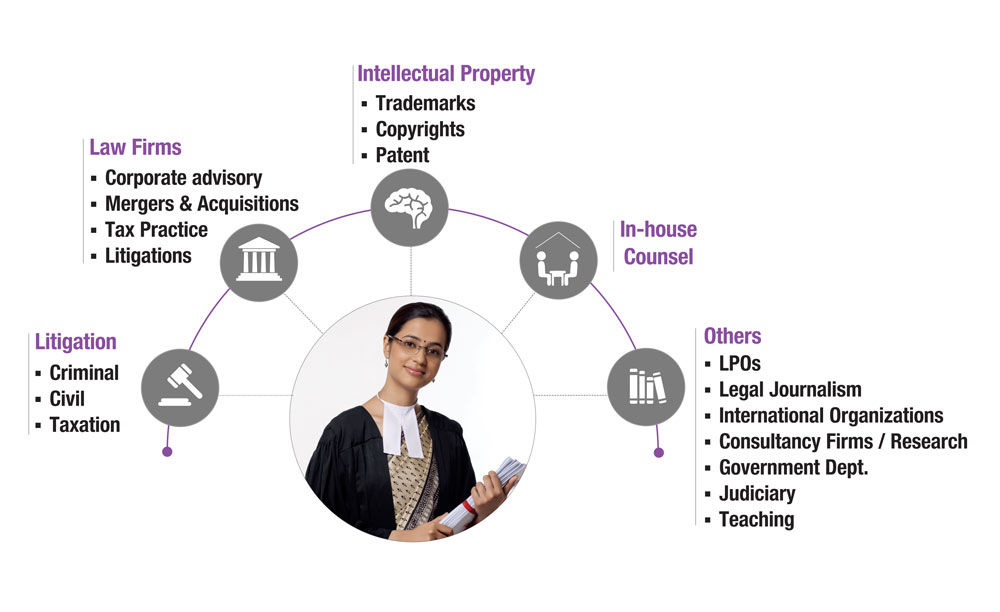The stream that you choose after class X largely determines career options that are available after class XII. It is important to have a clear career plan for a smooth transition from a being a student to professional. Choosing the right career calls for a long thought, a bit of research & consultation. One should consider the following factors before reaching a decision.
Law becomes an ideal choice for students, blessed with good communication skills, logical thinking and a flair for reading. Very much on the lines of IITs and IIMs, National Law Universities (NLUs) were established to reform the system of legal education in India. NLUs offer 5 yr. LL.B or Integrated LL.B programs. Admissions to this course is through an entrance test i.e. CLAT
CAREER IN LAW
It offers a golden opportunity to work with Law firms, Corporate Counsel, Legal Process Outsourcing firms, academia, judiciary and many more …
Entrance Eligibility: Any candidate who has passed HSC (10 + 2) exam from any stream with English as passing subject and secured minimum 50% marks in 12 standard.
Broad Format of Entrance Exam: (1) English Language skills (2) General Awareness (3) Logical & Analytical Ability (4) Legal Aptitude
Test Pattern: Different Universities have different pattern but most of them have MCQ & some of them have essay type questions.
Time allowed: 2 Hrs. Time Schedule of Entrance Exam: May to June
PREMIER INSTITUTE:
No. of Seats: 2980, Website : www.clat.ac.in
No. of Seats: 2400 (Approx), Website: www.ipu.ac.in
No. of Seats: 400 Approx. Website: www.set-test.org

NATIONAL LAW UNIVERSITY IN THE ORDER OF YOUR PREFERENCE:
Let’s explore law as a career.

A decade ago, career in law meant only litigation. Post globalization in 1992, foreign investment started pouring into the country. Business complexity increased & created a dire need for corporate lawyers and sophisticated law firms to advise clients on complex legal matters.
Secondly, establishment of NLUs revolutionized the legal education. This also changed the perception towards law as a premium & lucrative career option. Let us discuss a few career options.
It is one of the most conventional law career options. Litigation offers exposure to a wide range of situation specific issues for various types of clientele. While it takes some time to establish oneself, one can reap the benefits in the long run. Some of the well-known personalities in this field are Mr. Ram Jethmalani, Mr. Harish Salve, Mr. Kapil Sibal etc.
Heard of Amarchand & Mangaldas, AZB & Partners, Luthra & Luthra? The leading law consulting firms like these advise clients on legal matters. They also represent clients in civil or criminal cases, business transactions, and other matters. Most law firms recruit fresh graduates from leading NLUs. Kick starting one’s career with fat pay cheques lures most graduates towards them.
Intellectual property rights (IPR) refers to the legal rights given to the inventor to protect his invention for a certain period of time. IPR is a strong tool to protect investments, time, money & effort invested by the inventor. This is emerging as one of the most promising areas.
WhileLaw firms generally encourage lawyers to focus on a single specialisation, an in-house counsel handles generic matters & becomes a jack-of-all. One can enjoy fixed salary and relatively fixed working hours in this segment.
Legal Outsourcing refers to the practice of a law firm obtaining legal services from another one, generally based in another country. The field of legal outsourcing was largely untapped & is likely to witness a surge in demand in coming times.
In the Judiciary, posts of Magistrate/ Sub-Judge are filled up by recruitment through public service commissions or otherwise under the supervision of the High Court. Basic qualification for all these posts is a degree in law (professional), besides a degree in Arts / Science / Commerce etc. Most of the states recruit District and Sessions court Judges through competitive examination conducted by State commissions / High Courts. The uniqueness of this role lies in unmatched social status and perks enjoyed by Judges.
Law graduates can also work in Government dept., International organisations, NGOs, etc. Legal journalism is another less explored field which has ample scope in India. Lawyers who are post graduates / doctorates can take up teaching assignments in law colleges.
Wish you all the very best for a successful career ahead.
